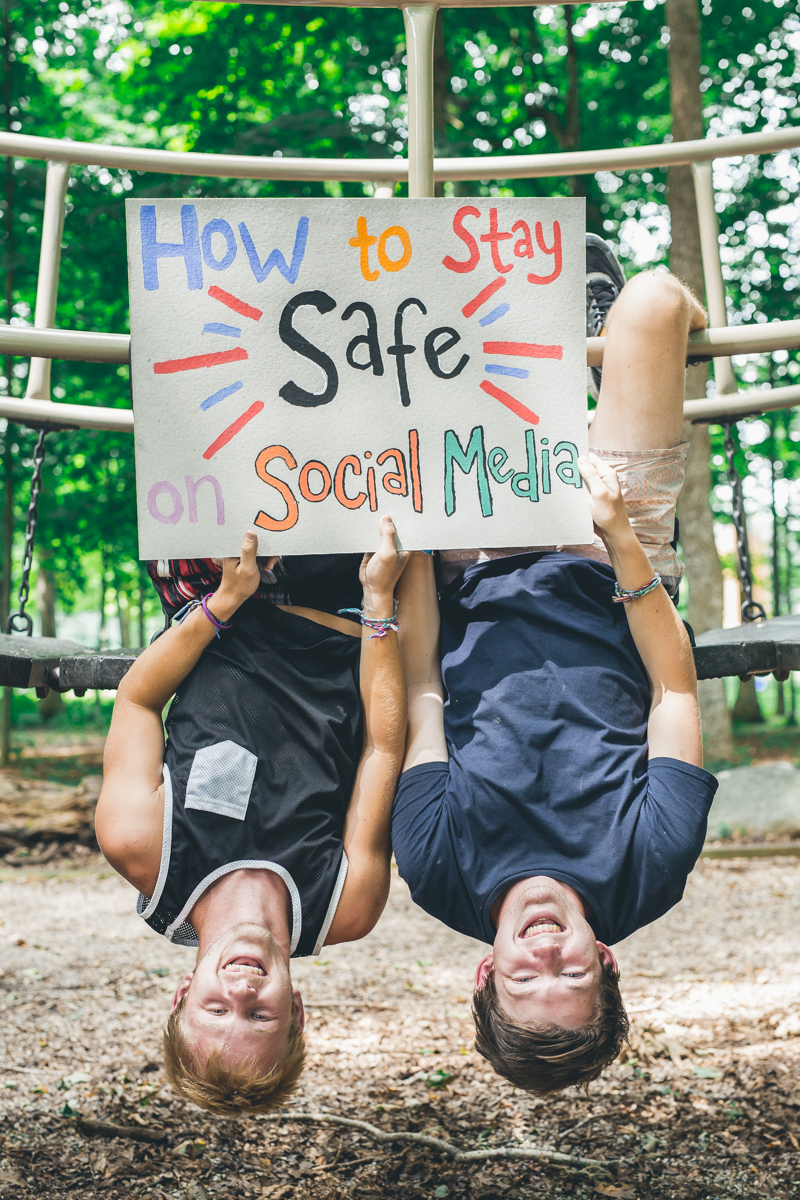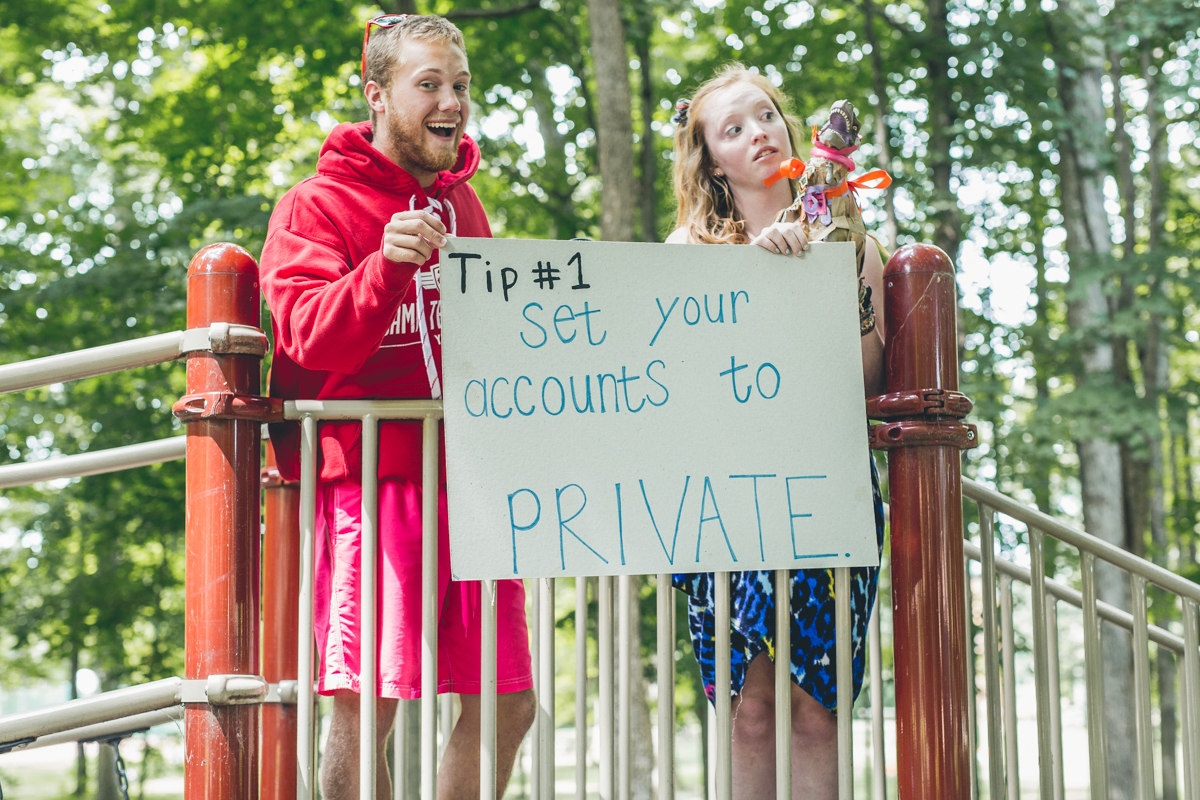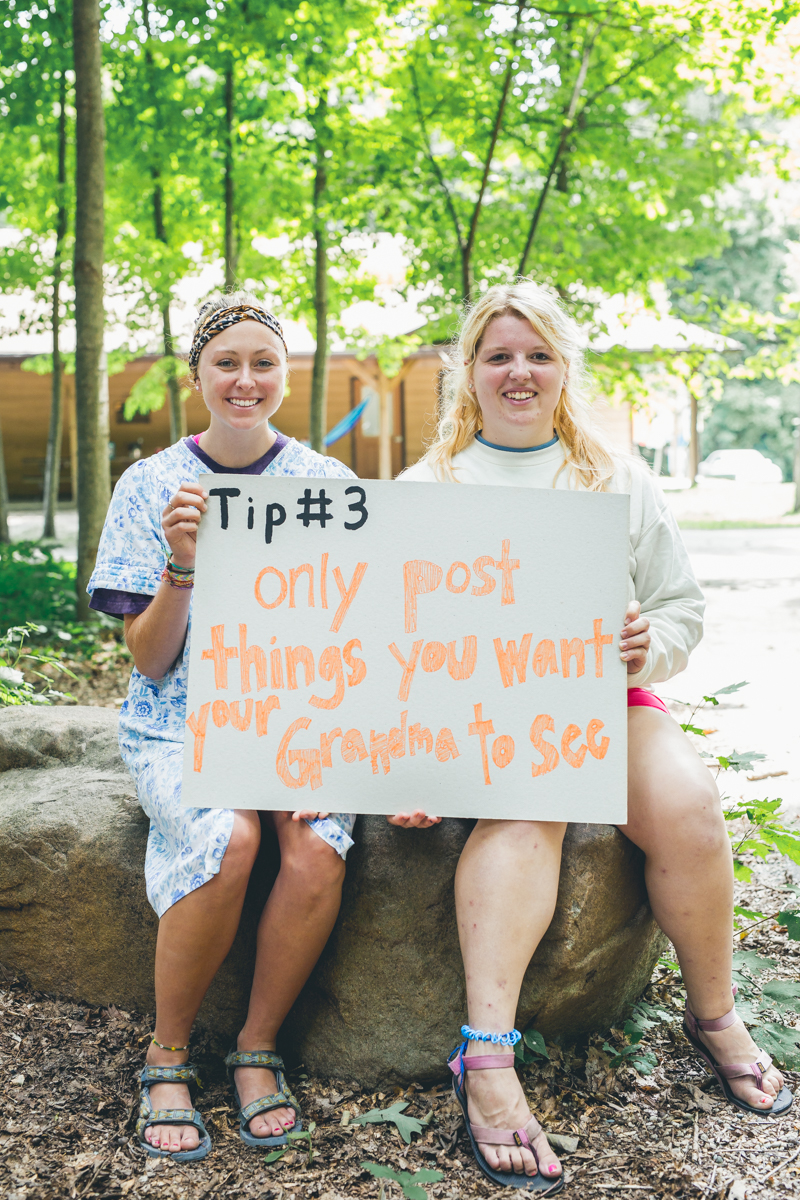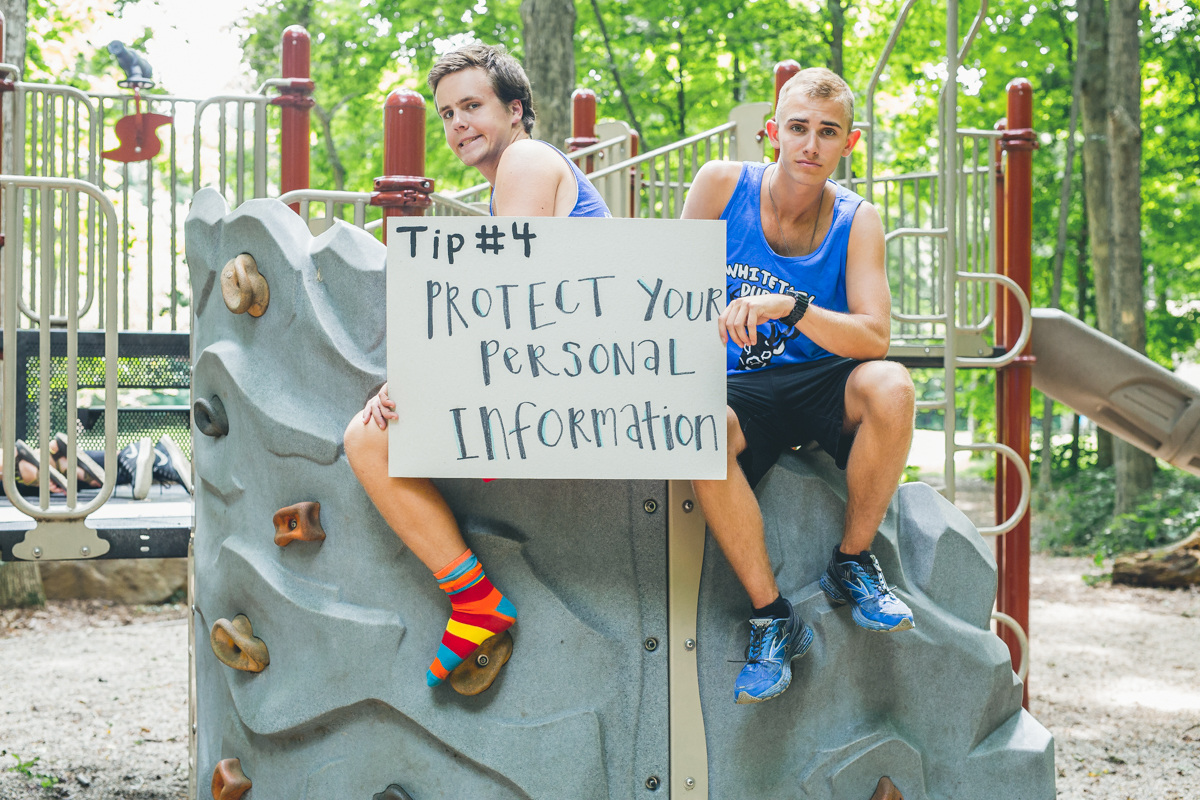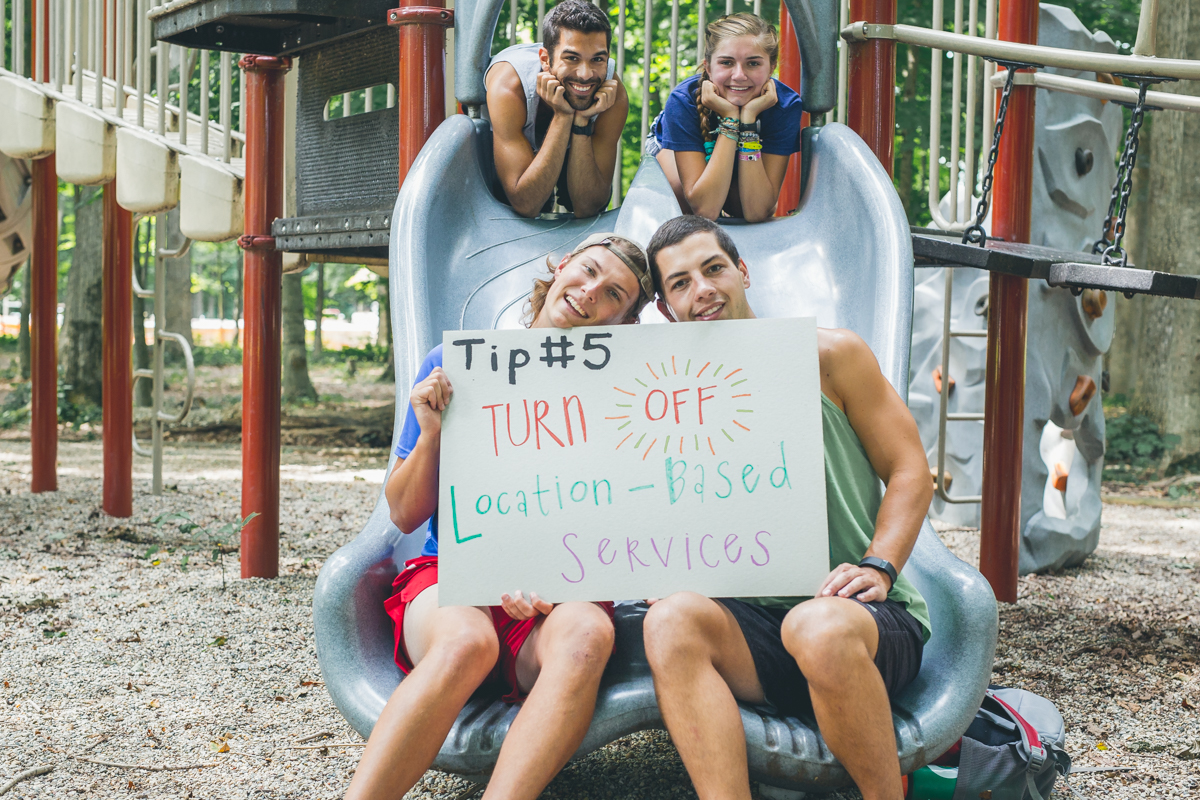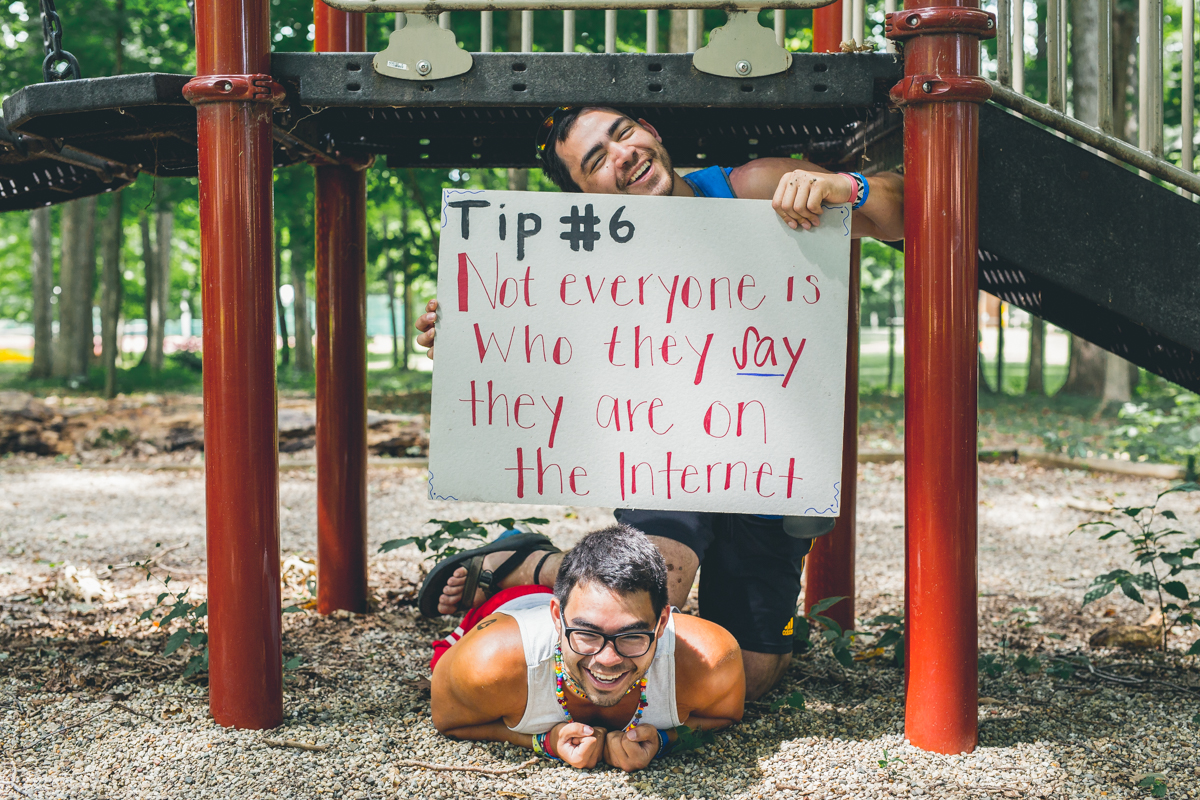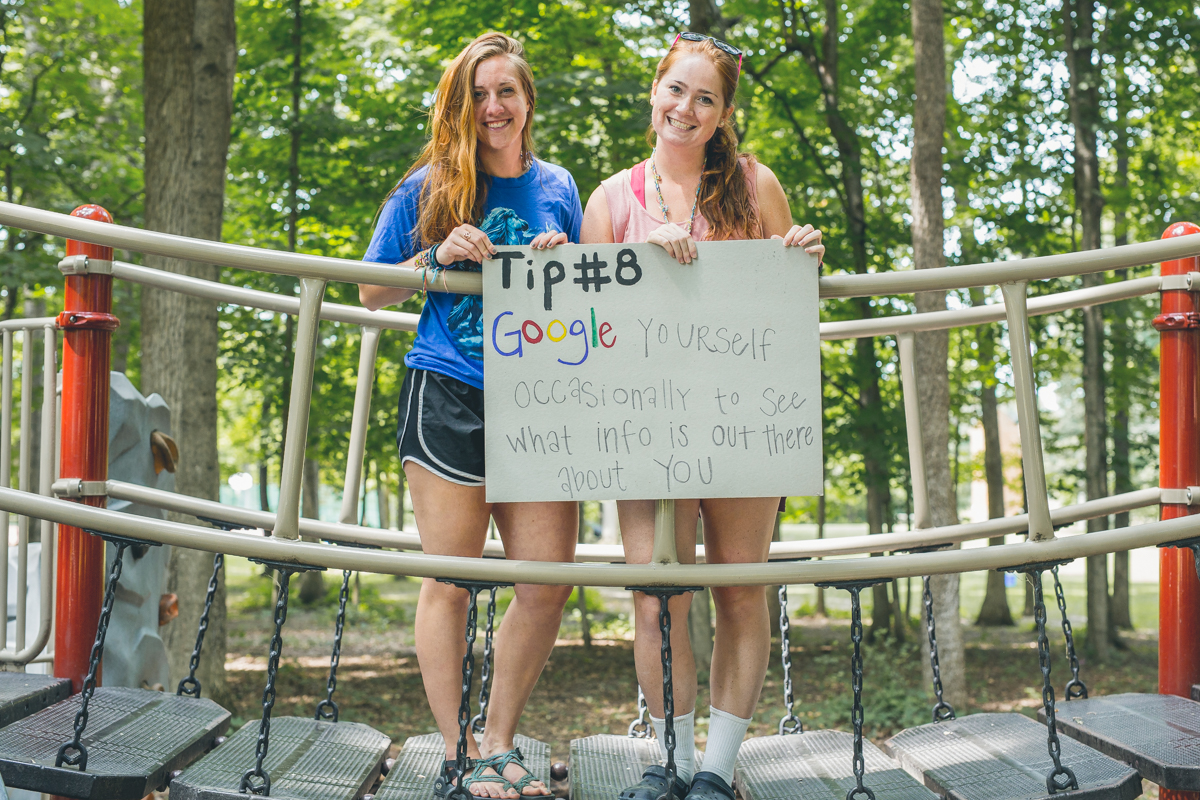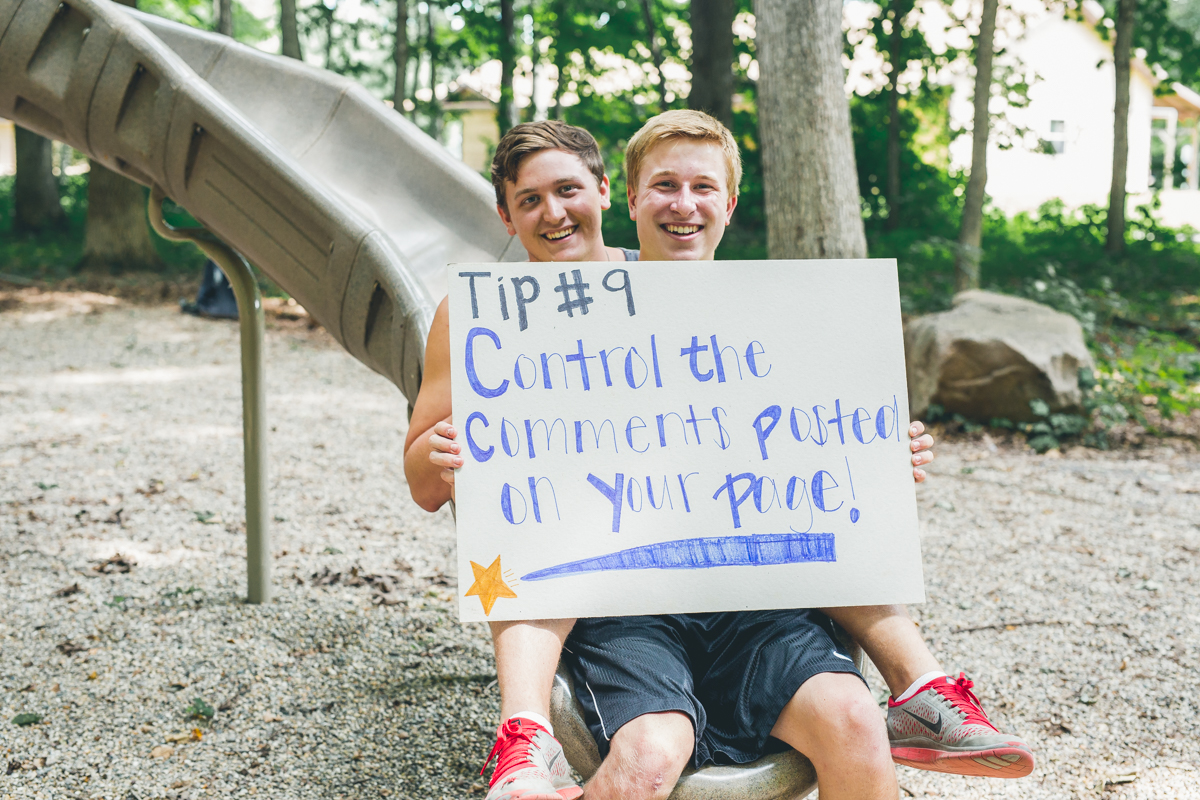How to Open Your Own Comics Retail Store Part I
During my past few columns I've spent a considerable amount of time talking about the ethics and operating philosophies that I employed in creating Mile High Comics. In contemplating where to go from those very broad philosophic generalities, I decided that it was time to spend a few columns discussing how to open your own comics retail store. This topic is the #2 question on my frequently asked questions list (right after the discovery of the Mile High/Edgar Church Collection...), so it seemed to me that discussing the pros and cons of being a comics entrepreneur would be of use to many of you.
To begin, if you're considering becoming a comics retailer, ask yourself these questions:
1) Do I have the ability to self-motivate myself?
2) Am I willing to forego all other activities in my life to be a comics dealer?
3) Can I make it my foremost goal to serve other comics fans?
4) Do I have the ability to ignore my own personal tastes?
5) Do I have the desire and intellectual curiosity to endlessly educate myself about new areas of collecting?
6) Do I have the mental toughness that will enable me to persevere, even when the odds seem hopelessly stacked against me?
7) Do I communicate well with others?
I hope that you're taking note that none of these questions has to do with business technical ability, or assets. It has been my experience that far too many prospective comics retailers assumed that if they had the working capital, and/or the technical ability to run a comics shop, that the job was right for them. In fact, nothing could be further from the truth. As a general rule, comics retailing is a very non-rewarding career choice. While there are certainly some quite successful comics retailers (including myself), the harsh reality is that most comics retailers struggle to get by from week-to-week. That being the case, the first question you need to be asking yourself is why the heck you're not getting into a different business, where the potential financial rewards are much greater.
If your answer is that you want to sell comics for a living because you have have a passion for comics, I'm unimpressed. Alcoholics have a passion for liquor, but that's certainly not a good reason for them to be operating a liquor store. In fact, I've seen a large number of comics stores fail because the owners were so wrapped up in their love of comics, that they forgot that they were running a business. To my way of thinking, having a passion for comics and graphic art is essential to running a good comics shop, but if that is your primary motivation, that could easily spell trouble.
Another important consideration is whether the stresses and strains of the entrepreneurial life are for you. Can you handle working six or seven days a week, for years on end, with few or no days off? I have a dear friend who recently closed her antiques shop because she ran afoul of exactly this problem. While she loved her shop very much, she and her companion were avid river rafters. Most rivers in the West have a lottery system for rafting permits, and she never knew when she would get lucky. Since her shop wasn't generating enough revenue to support even a part-time staff member, she was forced to close her store whenever she won a permit. She would then be gone for a week, or more. This simply doesn't work in most businesses, and absolutely not in comics. Being open regular hours (which includes not showing up habitually late) is imperative to the long-term functioning of a comics shop.
Another critical question is whether you can live with the stress of having to cover a weekly Diamond bill (for your new comics), and all the other bills that crop up in running a store? Bear in mind that opening a comics shop is very much a case of slapping the tar baby. It's incredibly easy to get into the business, but once you're in, you're stuck. With very few exceptions, most store owners quickly find themselves in some measure of debt, and the day comes when they realize that they can't get out. There is no viable secondary market for comics stores, so if you open one, it's usually true that the only way out is to close it. If that occurs, you usually still have bills coming due, but with no revenue stream with which to cover those liabilities. That's one reason why so many comics retailers of the early 1990's ended up in personal bankruptcy. Unless you're independently wealthy, being a comics retailer requires the psychological strength to go forward every day, realizing that you're playing without a safety net. One major screw-up, and you're dead. Can you handle that type of stress? If you can't, then stick with your day job. Comics retailing will eat you up.
How to Open Your Own Comics Retail Store Part II
After I wrote last week's initial column on the perils of opening a comics shop I gave it to Sean Scott, the head of our mail order subscription club, to read over. Sean reads each of my columns in advance of submission, and helps me catch many errors. In this instance, Sean didn't see any problem with the factual content of my column, but made the comment "The cynic in me knows that half the people reading this column will simply believe that you wrote it in order to scare off potential competition."
Sean's observation rather stunned me, as nothing could be further from the truth. During the 1980's, I saw the emergence of the comics retailing community as the answer to the decline of newsstand sales throughout America. I absolutely believed that the Direct Market was the panacea for all the ills of getting comics into the hands of collectors. Simply put, I believed that if there were just enough comics shops, then the comics industry would inevitably prosper. I wrote this opinion in numerous columns during that period, and went out of my way to try and help prospective retailers get started.
What has happened in the interim is that I have witnessed the effects of uncontrolled growth within the comics retailing community. In my role as a bulk buyer of back issue comics, I am frequently witness to the sadness and despair that accompany the disintegration of personal dreams. No matter how well intended these sellers of comics once were, the end result is that they were unable to keep their dream of retailing comics alive. As a result, they find themselves in the helpless position of having to dump their remaining inventory on the market, usually for pennies on the dollar, just to try and quiet a few of their threatening creditors.
What my experience in these sad situations has burned into my psyche is that not everyone is ready to own their own business. More importantly, even within the small population that pass the initial hurdle of having the abilities to become an entrepreneur, even fewer have the personality traits and skills required to retail comics. I remember reading a Small Business Administration (SBA) pamphlet 30 years ago which laid out the hard facts that 70% of new businesses started in America fail within three years, and that 85% fail within five years. At the time I read those chilling numbers I thought they must be wrong. I've since learned, however, that for the specialized area of comics retailing, those percentages were actually a bit optimistic. Very few of the stores that were opened from 1988-1999 are still in business, and I'll bet that 75% of those that are still open could be purchased for net asset value, with no consideration given for the enterprise as an ongoing business.
What is motivating me to write this series of columns on opening a comics retail store is a sincere desire to not repeat past mistakes. I will no longer simply give prospective comics retailers advice on the paths to follow to get a store open. As I said in my last column, opening a comics store is very easy. Diamond has low minimum order requirements, empty stores for lease abound in America, and fixtures can be purchased for relatively little initial investment. Where the process becomes much more complicated is in the day-to-day operations end of things. What most comics retailers never figure out (until it's too late...) is that they are losing money every day that they are open for business. They accumulate lots of inventory, and come to believe that owning lots of stuff is the same thing as making a profit. Well, that's only true if you have a cost-effective mechanism for turning your stuff into cash. If you don't own such a mechanism, you're not generating a profit, you're simply adding to your storage cost burden. Eventually that burden, combined with a lack of cash flow, will kill your business.
So why would you ever even consider opening a comics shop? Well, for one thing comics need your help. If you have the personality and the skills to operate a viable comics retailing business, the reality still exists that you can make a positive contribution to the world of comics, and also make a decent living. With some hard work, and luck, you might even be able to join those of us who have managed to figure out a way to make more than a little money selling comics. The world of comics is full of opportunities right now, and it looks as though sales are once again growing on a nationwide basis. This might very well be an excellent time to catch a growth wave, and consequently gain that little bit of extra advantage that every starting business seeks to achieve the critical mass needed to succeed in the longer term. My next few columns will explore other elements of comics retailing in order to help you make an informed choice as to whether to attempt the risky proposition of opening your own comics retailing business. Far from discouraging you from giving comics retailing a try, I hope that my columns clearly lay out to you some of the errors that have been made in the past. By frankly putting that knowledge in your hands, I am only trying to help increase your odds of success.
How to Open Your Own Comics Retail Store Part III
If, after reading my last two columns, you still have any ambitions to open a comics shop at some point in your future, I would like you to go through some self examination to see if you're a fit candidate. The questions about your personality that I'm going to be asking you to contemplate are not specific to comics retailing, and actually have significant applicability to life in general, so I believe that even those of you who harbor no ambitions to someday participate in the world of comics retailing might find them enlightening.
First, are you scrupulously honest? This is a critical question, as we all live or die in our public lives based on the perception that others have as to whether they can trust us. I have an aquaintance who is a fantastic hustler, he can sell anything to anybody. But only just once, or maybe twice. This guy's failing is that he invariably tries to cheat people on the deals they make with him, if only a little bit. For him, it's like a game. He is constantly testing people to see if they remember the terms they agreed to, or if they bothered to examine what they received from him, to see if all items were there, and in undamaged condition. Not surprisingly, when folks figure out he can't be relied upon to keep his word, they never go back to him again. He's now approaching retirement age, and coming to realize that he's achieved no where near what he could during his life. He'll be living on Social Security in a few years, as the value of his business has been severely constrained by his predisposition to cheat others. The irony is that even his Social Security check will be severely below what it should have been, as he has consistantly under-reported his earnings to the government...
On the same lines as honesty is the question of fairness. Can you work every day to genuinely try to be of service to all of those with whom you interact? It never ceases to amaze me how many people enter into the business world with the thought that their business exists to serve them. Nothing could be futher from the truth. When you open a business you immediately become responsible to a huge constituancy. You suddenly have a responsibility to serve your customers and your suppliers, and to hopefully make a contribution not only to your local community, but also to the world at large. While it is your capital that is employed in operating the business, your job becomes a tricky tightrope walk of trying to please everyone. If you hire some staff to help you, these questions become even more difficult, as you now need to fairly allocate operating earnings you might be generating between yourself (as the provider of capital) and your staff (the providers of labor).
Assuming that you are both honest and fair, do you have the ability to communicate with others? It doesn't do a darn bit of good to treat people fairly, if they somehow gain the misconception that you've wronged them, and you don't have the ability to dissuade them from their erroneous position. I was a Finance major at the University of Colorado during my school days, and I certainly learned a great deal in the Business School. The most valuable tools of my trade, however, came from the Communications Department. Taking all those classes in interpersonal communications made it much easier for me to place myself in the position of those with whom I'm communicating. That is an invaluable skill to have when trying to build a business. You not only have to make sure that you're fair and honest with people, but also that they know it.
My final question for this week is whether you can create a dichotomy in your mind between your personal life, and that of your business. As I stated earlier, it is critical to realize that your business is an entity which is alive. It needs care and nourishment, and periodic infusions of working capital. Ideally, this new working capital will be derived from a reinvestment of the operating earnings you've been generating on a daily basis. Where many folks go wrong is that they see the earnings of the business as "their" money. Well, if you're planing to go nowhere fast, that's certainly true. If you plan for your business to grow, however, you'll need to put yourself on a strict payment plan. You will need to draw a fixed salary, just like everyone else. The only difference being that if hard times come, your salary is the first to be cut. While this may sound harsh, it is a critical methodology for gradually building up the capital base of your company. You have to always keep foremost in your mind that if you take care of your business, that it will hopefully grow, and ultimately repay your investments many fold. This can only occur, however, if you have the ability to always differentiate between your personal needs, and that of your business.
Next week, I'll cover some specific operating skills that are necessary for running a comics shop.
How to Open Your Own Comics Retail Store Part IV
If you've read my previous columns on the factors you need to take into account when considering opening your own comics shop, you already know that my opinion in the matter is that you need to have a great deal of dedication to be a full time comics dealer. You also need to be honest, fair, and have the ability to communicate well. Finally, it is critical that you realize that once you open a store (of any kind...), that the assets of your business have to remain separate from your personal assets. Your business will live and breathe on the working capital foundation you have initially provided for it, and it is only from the retained earnings you keep in the business that it derives the strength to keep growing.
If you feel that you have all the above mentioned personal qualities, I would then question if you have the courage required to be an entrepreneur. One trend that quickly became evident during the comic book store boom of the early 1990's was the propensity of many new comics shops owners to cut and run when the going got tough. They were very interested in owning a comics shop when the prospect of quick profits were on the horizon, but when sales started dropping off steeply in mid-1993, we saw the largest number of store closures in the history of comics fandom. This left tens of thousands of fans without any local source for their comics. Without a doubt, this greatly aggravated the decline of comics publishing during the mid-1990's.
Before you jump in with a "Sure, I really have what it takes to stick out the hard times!," think first about those who depend on you. It is very easy to be courageous when you're young, only risking assets that you feel that you can easily replace. It becomes an entirely different story when you have a spouse, children, and/or elderly parents who are depending upon you as a regular source of income. Right now is an excellent case in point, as the early Fall period tends to be very slow in the comics world, as many of our regular customers head back for school. Sales in many retail stores quite suddenly drop anywhere from 15%-35% in late August or early September, right as those big Summer bills are coming due. Gut check time. If you haven't been able to accumulate any cash reserves during the Summer, this can be one of those periods of misery that make you wonder why in the world you ever went into business for yourself. The folks in the Diamond credit department are not unreasonable, but they have to make sure that Diamond gets paid...
There are three possibilities for how to avoid a cash crunch in the early Fall. First, have lots of working capital in your business right from the beginning. I know a few people who have actually been able to inherit, or save, enough money to be debt-free in their store right from the beginning. The second option is to have a second income. I know of more than a few comics retailers who have kept their high-paying day job, and hired someone to run their store for them. This is more successful than you might think. The third option is to have a store that generates enough operating cash flow to allow you to have a cash reserve. This almost never happens.
If you're wondering why a comics store seldom generates positive cash flow, the answer is usually inventory. Go to any comics shop in America, and the odds are very high that the store is chock full of all manner of toys, games, books, comics, t-shirts, etc. At first glance, this would lead you to believe that the store is very successful and prosperous. If you delve deeper, however, I'll bet that you'll discover that most stores are filled primarily with their mistakes. Comics retailers are notorious for seldom liquidating slow product, and as a result, what you see in a store is not what their customers are seeking, but rather what they got stuck with from previous weekly shipments. Sadly, most stores are forced to forgo the hot new products that everyone is eager to purchase, because all their working capital is tied up in product that will be very slow to sell.
The final issue I want to address for this week is to dispel the commonly held notion that when you go into business for yourself that you become "Your own boss." Hah! Nothing could be further from the truth. As a small business owner in any field, you become responsible to those who provide you with funding, your staff, your customers, and your community as a whole. This situation becomes even more pronounced in the comics world, where Diamond is the sole and exclusive supplier on most comics product. As much as they hate to admit it, most comics store owners are de facto employees of Diamond. Whether they like it or not, they run a Diamond catalog outlet store, carrying primarily merchandise that Diamond lists in their monthly PREVIEWS magazine. While this makes the ease of opening a comics store far more simple than opening a store in many other retail fields, it can be galling to know that out of every dollar you take in through the register, Diamond is taking (at the least) 5% of the gross. It is true that no one at Diamond can fire you in the way that a boss can, but if you fall behind in your payments, they can force you out of business, and possibly into personal bankruptcy. Think about this for a long time before you put yourself into the position of "Being your own boss."
Next week, I'll get into the hard numbers for opening a store.
How to Open Your Own Comics Retail Store Part V
This is the fifth in my series of columns on the topic of how to open a comics shop. I apologize to those of you who (wisely) have no interest in going into business for yourselves, and would rather I wrote about more general issues affecting the world of comics. I'll get back to writing those types of columns fairly soon, but my experience has been that the majority of comics fans dream of either becoming a comics creator, or owning a comics store. I know very little of the ins and outs of joining the creative community, but I do have 30 years of experience in owning comics shops, so these columns are my attempt to try and help those who would open their own store avoid some of the pitfalls that I've seen destroy the lives of some very nice, but naive, newcomers to the comics retailing biz.
After several weeks of covering the personal attributes you need to survive in the world of comics retailing, I'm now ready to get into the harsh financial realities. My first suggestion would be that you calculate your personal living expenses, and make sure that you either have enough set aside to live on for a minimum of one year, or that you keep some sort of external cash flow going, such as a part time job. Expecting your newly-opened store to generate enough cash flow to not only cover its initial growth costs, but also enough to pay you a salary in the first year, is unrealistic. When I opened the very first Mile High Comics location (1974) I was attending the University of Colorado on a full time basis. Because my stepfather had retired at that point, I received a small monthly check ($260) from the government for my schooling. I lived on my school money for the first two years that Mile High Comics was in business.
My next suggestion would be for you to build some sweat equity into your store long before you open the doors. What I mean by this is that you should start selling back issue comics and collectibles at flea markets, antique sales, and online for at least a year before you try and open your first store. Not only will this advance training serve you well in terms of knowledge and experience, but it will also give you an opportunity to gradually increase your inventory, without having to pump in a lot of initial cash. I sold at the Colorado Springs Indoor Antiques Market on weekends for four years before I opened my first store. I also attended several national comics conventions, and ran mail order ads in the old ROCKET'S BLAST COMIC COLLECTOR fanzine. These were all methods for building my working capital in advance of opening.
When I finally opened the first Mile High Comics location in Boulder, Colorado, I had managed to save only $800 in cash, but I had gradually accumulated the equivilent of 40 long boxes of high grade Silver Age. The cash was gone within the first 30 days, but the Silver Age was a store of value that generated revenue for me for the next couple of years. More important than the working capital that came from my pre-store experiences was the knowledge I gained by selling into all sorts of markets. I learned there was a huge difference between selling at a flea market in Colorado, a comics convention in Texas; and even more differences when selling to a national audience of collectors through the mail. I also learned a great deal about the history of comics publishing, as dealing with so many types of comics fans required me to become knowledgeable about all kinds of comics, ranging from Platinum Age, all the way to present. This knowledge came in very handy when I opened the first store.
Before I go on, I want to emphasize that having inventory and knowledge does not excuse you from needing working capital to open a store. While I managed to do it in 1974 with only $800, I was very young, and very stubborn. I simply wouldn't admit that it couldn't be done, so I plunged into business with far less working capital than I really needed. The fact that I made it is more a testimony to the willingness of others to help me than any particular positive attributes that I brought to the table. The one thing that period taught me more than any other, however, was how important it was to have supporters in the background. That's part of the reason why I stressed honesty, fairness, and communication in my past couple of columns. I would never have made it had not the people who helped me in 1974-1976 not believed in me. I was only 19 years old, and they had no evidence besides my ability to communicate my integrity that they should risk extending credit to Mile High Comics. Always remember that if you're planning to be in business for a long time, that your actions of today will reflect upon you for the rest of your life. People who are good to their word are rare these days, and if you can exemplify that type of person, I think you will find that many people go out of their way to help you. Working capital is, of course, a necessity, but so is the support of your customers, your peers, your community, and your suppliers. You will only achieve that support if you commit yourself, right from the beginning, to always follow the path of righteousness.
Next week, I'll provide you a few cost estimates of opening a single comics shop..
How to Open Your Own Comics Retail Store Part VI
If my past six columns on the risks and requirements of opening your own comics shop haven't scared you off of the idea, then maybe discussing (in very general terms) the costs involved in opening a store will bring you to your senses. I say this with some measure of facetiousness, as I really would like to see more fans take the next step into retailing comics, but I want to be sure that everyone who makes the decision to hit the tar baby knows exactly what they're getting into before they begin.
As regards working capital requirements, a lot depends on the size and scope of your store. Are you planning to open (at least initially) a small (700-900 square foot) neighborhood store? In that case I would estimate that $50,000 would get you started. You can figure the following in expenses:
Fixtures $10,000
Inventory $30,000
Advertising $ 5,000
Safety Reserve $5,000
I've made this analysis incredibly simplistic, as fixtures will include not only display racks, but also signage, phone installation, first month's rent and security deposit, computer software, etc. Believe me, $10,000 evaporates very quickly in addressing those areas. That's why most new comics stores end up buying their fixtures second-hand.
As regards inventory, you can figure that you'll have to pay Diamond up front for much of your initial inventory. Even if your primary focus will be comics, you'll still need to purchase a supply of trade paperbacks, statues, and comics-related toys. As a newbie, with no established earned discount, your max discount on this initial purchase will probably be only 40%. The math can be chilling, as just a purchase of 500 trade paperbacks at $19.95 each equals $9,975 at full retail. Even with your 40% discount, you will still owe Diamond $5,985.00 for this small batch of books, plus freight. Bear in mind that 500 trades will not get you far, as that is equal to about 1 copy each of the popular titles that are in stock with Diamond.
What makes this math even more difficult is that not all of the inventory you initially purchase will sell to your local audience. This is the bane of comics shops, and the #1 reason why they fold. A typical successful neighborhood comics shop has about 200 regular customers (at least one visit per 2-3 weeks), 200 peripheral customers (at least one visit per 5-6 weeks), and another couple hundred folks who stop by a couple of times a year. While that may seem like a lot of fans in total, it really isn't. Particularly if you're ordering all sorts of diverse product, hoping that at least one person in your clientele group will have an interest in every item. As a general rule, no matter what you do, you will get stuck with all manner of good products that no one within your usual clientele will have any interest in buying. This is the point at which your precious working capital starts being tied up in unsold inventory. If you don't figure out a way to get that inventory selling, your business will inevitably die.
Another very important factor in the success of your new store is that you have an attractive stock of collectibles. If you don't take advantage of the suggestion I made in my last column to spend a couple of years selling on weekends to build up a collectibles inventory before you open, then you'll need to purchase a very large collection of prime material before you open. This can be done at comics conventions from other dealers, but be prepared to pay top dollar. That's why most new comics store owners quickly make the decision to contribute some, or all, of their personal collection into the store. The hard truth is that most successful comics shop owners end up owning far fewer comics after they open their store, then when they were just a fan...
On the topic of advertising, it is critical to get the word out to as broad a spectrum of the general populace as possible that you've opened a new comics shop. Even utilizing very limited mechanisms (Yellow Pages ads, flyers, newspaper ads, late night cable spots, radio ads, etc.), this is going to cost you a minimum of $5,000. If there's already another comics shop within 10 miles, double that figure. The good news is that the need to advertise diminishes over time. Once comics fans realize where you are, word-of-mouth advertising will usually keep them coming in, but getting your initial critical mass of customers to start frequenting the store can be quite expensive.
My final budget item was to keep at least $5,000 in a cash reserve. This will, of course, not work for you for very long. Of the 3,000+ comics shops open in America today, I doubt if more than a few hundred could claim that they have access to $5,000 in free working capital. Still, if you can at all do it, it would be wonderful for your peace of mind to know that you always have at least one month's basic expenses tucked away. You never know when another economic disruption, such as a UPS strike, or 9/11 might occur.
All of the costs I've mentioned to this point are for a barebones comics shop. If you are also planning to sell cards, games, toys, or other non-comics related product lines, then I highly encourage you to seek more working capital. A full-line new store will require at least $100,000 to get started.
Next week, I'll offer some suggestions on how to reduce the costs of opening a store.
How to Open Your Own Comics Retail Store Part VII
In my last column, I gave you the bad news that opening your own comics shop requires a minimum of $50,000 in initial working capital, and upwards of $100,000 if you're planning to stock a broad selection of cards, toys, and games. Now I want to go past those initial harsh numbers, and give you an alternative plan. Simply put, I would suggest that if you're interested in becoming a full-time comics retailer, check around your area and see if there are any existing shops that might be for sale. Bear in mind, however, that I'm still not recommending that you start with less than $50,000 in working capital, even if you're buying an existing store. You'll still need that much money for your down payment, and to reinvigorate the store's inventory.
My goal in advising you to seek an existing shop to purchase is to try and save you much of the effort and cost that typically goes into starting a store from scratch. As an example, an existing store with any kind of decent sales volume is likely to have an earned discount from Diamond that is higher than the maximum 40% discount that you would be receiving if you started an entirely new operation. That higher discount could possibly save you several thousand dollars in your first month of operation. Especially if you were restocking the store with a large amount of new material. You would also inherit, at least in some measure, existing customer traffic. That could save you thousands of dollars in advertising costs. The fixtures in the store might be worn, but going out and trying to find entirely new fixtures is cost-prohibitive for most new operations. I figure it is much better to purchase used fixtures all in a group, rather than having to search them out, one at a time.
Having mentioned the positives of purchasing an existing store, I now want to dwell on a few negatives. The first is the quality of the existing operation. Does the store have good sales ($10,000 - $20,000 per month)? If the answer to that question seems to be positive, then focus on the quality of the sales. Are the current owners selling products at full price, or are they discounting heavily? My experience has been that it is a foolish waste of time to buy operations that have been steeply discounting. Their customers most likely come to them primarily because of those "sweetheart" deals, and will not take kindly to having their discounts rolled back. In fact, I've even seen instances where customers will stop frequenting a store out of pure spite, simply because the deal we offered after taking over the operation was slightly less than what they had been getting from the previous management. It didn't matter that our deal was still the best around. All that mattered was the fact that we were now the "Bad Guys," for having taken away their cherry deal. Avoid this problem at all costs. Only consider purchasing a store where the majority of sales have been at, or close to, full price.
Another consideration is the type of sales being generated. If your primary area of expertise is comics, yet 35% of the store's gross comes from gaming, you better think twice about whether you want to try and broaden your knowledge base in order to accommodate that type of fan. If you're not prepared to learn enough about gaming to help and encourage the gaming fans in the area, you need to expect the majority of them to go away. If that were the case, you would need to severely adjust your sales projections, and your budget. Clearly, you couldn't pay very much for the store.
My final concern on sales when I'm purchasing a store is the earned discount on the items being sold. A store that is just a DIAMOND PREVIEWS catalog operation is a poor candidate for purchase. While Diamond's contracts with the large comics publishers require them to offer a sliding scale of discounts that reward you significantly for selling larger numbers of comics, the other items that Diamond offers in 75% of the catalog have a max 40% off discount. Frankly, you can't survive on 40% off. If you can't achieve an average of a 50% discount on all the items you sell in any given month, you're already dead. You just might not know it yet... The most successful comics stores are generally those that generate a high percentage of their sales from back issue comics and collectibles. Margins in those areas are typically 60%-90%. When substantial back issue comics and collectibles sales are blended together with lower margin PREVIEWS product, it can be relatively easy to reach the required 50% margin figure, and sometimes go quite a bit higher. Bear in mind that each 1% of operating margin for a store grossing $20,000 per month is $200 in net profit. Margin points really matter!
If the store you're considering purchasing passes all of the above requirements, then I think you may be on to something good. Believe me, if you can find the right purchase situation, you can save yourself years of effort, and tens of thousands of dollars of cost. This not a pie-in-the-sky suggestion, either, as I would project that half of the comics dealers in America would sell out tomorrow if offered a reasonable down payment for their store. If that's the case, however, then why would you ever want to enter the business? I'll offer my explanation next week...
How to Open Your Own Comics Retail Store Part VIII
My last few columns have all been about the pros and cons of opening your own comics store. As a central theme, I have chosen to dwell on the pitfalls that I've seen sink so many naive and inexperienced would-be comics retailers, and to clearly point out the dangers and difficulties of trying to operate your own comics business. My warnings have not been out of any desire to discourage the entry into the comics market of new retailers, but rather to be quite candid about the risks. Simply put, opening a comics retail store is just as perilous (if not more so) as attempting to start any other kind of new business.
Now that the warnings are out of the way, I can finally switch into my much preferred proselytizing mode. If, after reading my past few columns, you still believe that you have the will, the talent, the courage, and the working capital to successfully open a comics retail business, please take that last step, and just do it! Make your plans, do some research, find a location (either new or existing), and get your doors open. While opening your store exposes you to significant financial risk, it may also end up being the very best decision you've ever made in your life.
When you join the community of professional comics retailers, you become a member of a very elite group. While Diamond professes to supply in excess of 3,000 active comics retailers, I would discount that number by at least half. The accounts I would exclude from inclusion in our community are those whose primary business are other types of retailing ( i.e. bookstores, record stores, video stores, etc.) that just carry a few comics on the side. While these outlets may be the only venue that services a given geographic comics fan base, they hardly qualify as a comics specialty outlet.
I draw this distinction because a true comics shop is far more akin to a place of worship, than any other kind of retail store. Before you scoff at that proposition, consider that most religions are mutually shared systems of belief, based on faith in certain inalterable givens which may be hard to justify on the basis of apparent logic. The purpose of these systems of belief is to help followers deal with the trauma of being human, and the ultimate inevitability of death. Faithful adherents gather together at least once a week to seek reinforcement in their beliefs. Frequently they appoint a leader, and onto that leader they assign the responsibility for keeping them on the "right" path.
Do some elements of this sound familiar with what we see in a comics shop? I believe that they are strikingly similar. This is most certainly not to say that I believe that being a fan of comics obviates the need for religious grounding in one's life. What I am saying is that the mechanisms involved in running a comics shop are far more like running a church, than running a typical retail store. That having been said, for those of you who might be offended at my correlation, I want to make clear that I do not think that comics are a religion. All I am saying is that after 32 years as a comics retailer that I believe that people come to a comics shop seeking to escape the stress and traumas of their lives, and to find momentary enjoyment in the art and stories that creators have chosen to put into graphic form. That being the case, I believe it is the responsibility of the staff of a well-run comics shop to help them find the comics which will bring them the most possible pleasure, comfort, and joy. Our job is to (at least for a little while...) make people's lives happier. I believe that's a darn good reason for getting up in the morning.
Another very positive task you will be taking on if you decide to become a comics retailer is safeguarding the future of comics as an institution. We are both blessed and cursed at this moment in the history of comics. Our blessing is that the comics being produced today are among the best ever created in the entire history of the medium. Never have we had so much wonderful talent producing comics of all kinds. This truly is a era which supersedes even the Golden Age in terms of brilliance.
Our curse today is that print runs have fallen so low that there is significant risk that the entire business and culture of comics may lose critical mass, and implode. At this very moment there are perhaps 1,000 dedicated comics retailers who are holding back the forces of the apocalypse. Many of those select few have been financially weakened by the comics recession of the 1990's, and are considering giving up the fight. We need the strength and vitality of new retailers very badly right now, for this may very well be the time of reckoning for the entire comics world. Join us in our fight! We need you. Comics need you. The fans of your area need you. You probably won't get rich owning a comics shop, but you'll certainly be doing something positive and right every day. How many people can say that is the central theme of their lives? As I said earlier, opening a comics shop is risky. But taking that step may very well end up being the very best thing you've ever done for yourself in your entire life.
How to Open Your Own Comics Retail Store Part IX
This column marks my one year anniversary as a writer for CBG. In many regards, I am surprised that my column has lasted this long, as my original theme for the column was ostensibly to provide insights into the how's and why's of the pricing for back issue comics. As those of you who faithfully read the column are well aware, I've wandered far and wide from that original premise. So far, in fact, that the back issue market has seldom been mentioned at all. To my surprise, my musing in areas outside the back issue market have proven very popular with many of you, and you've taken the time to make your positive opinions of my columns known to both me personally, and to my editors at CBG. I thank all of you wholeheartedly for your kind support during this past year, and I promise that I will try and continue to provide you with some of the insights I have derived while working in the comics world for the past 32 years.
My past few columns have been on the topic of opening your own comics shop. Last week, I went into my evangelical mode, exhorting those of you who feel that you have the capabilities needed to make a comics shop succeed to join us in our battle to save the world of comics from oblivion. In that column, I specifically mentioned that one of the great rewards of being a comics dealer is that you get to work each day to provide others with material that will make them happy, and to (at least momentarily) divert them away from their daily cares and troubles.
While making others happy is certainly a wonderful altruistic goal, and while I personally find it to be very rewarding, I can understand where helping others can't be the only reason for you to go into business. Nor is saving the comics world, no matter how noble a cause that might be. Going into business involves a great deal of risk, and there have to be some potential financial rewards. In this case, I would advise anyone entering the comics retailing world to make themselves as Internet-savvy as possible before opening their doors. While I see the entire comics world as being quite threatened by the continuing decline in print runs that have plagued us since 1993, I also see enormous opportunities for new growth via the Internet.
To expand upon that thought, I already see this new growth in the comics world manifesting itself in the huge resurgence of back issue comics sales that the industry is already experiencing both through individual online retailers, and through public transaction sites, such as eBay. Three years ago, I was a member of CBG's "Punchline Live" panel at the San Diego Comic-Con International. The topic that year was "Comics and the Internet". One question that was asked of the members of the panel was what percentage of the overall comics business would be transacted through the Internet by 2004. I was the only member of the panel who believed that online sales would be more than 50% in five years. Well, it has been slightly over three years, and the best estimates of the experts are now that online sales of back issues may have already eclipsed the revenues of all new comics. If they're not ahead now, it seems inevitable that they will be soon.
While I certainly view that huge growth in online sales as a vindication of my (at the time) controversial projection, I believe this is just the beginning. Graphic art is particularly well suited for online sales, and it is astounding how many new fans we're discovering. In 1993, when Mile High's mail order catalog operation was at its peak, we had 30,000 customers on our mailing list. By 1997, we were down to about 8,500, and we were about to go broke. Since switching our entire mail order operation to the Internet we've grown to the extent that last month over 265,000 different people visited our website. Now that's growth!
To return to my original subject, I think that it is impossible to open a comics shop today without including Internet sales as a part of your business plan. At the very least, you should be using the public transaction sites as a means to dispose of stale inventory, so you can recycle that working capital into new products. The stores I see succeeding today are those who recognize that not only can the Internet help them generate revenues, but it is also the cheapest advertising mechanism available for bringing people to your location from all over the world. Frankly, I see the world populated with two kinds of comics shops right now: those who utilize the Internet aggressively, and those who are going out of business (even if they don't know it yet...).
Next week, I'll provide some thoughts on how the Internet both helps, and impedes, the sale of new comics.
Please send your e-mails to chuck@milehighcomics.com, and your letters to:
Mile High Comics, Inc.
Attn: Chuck Rozanski
2151 W. 56th Ave.
Denver, CO 80221
|









